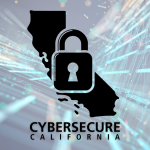In today’s digital landscape, where technology governs the majority of operations, the significance of robust IT policies cannot be overstated. For companies, government agencies, businesses, and special districts, these policies are not just guidelines but are fundamental to ensuring security, compliance, and efficiency. This guide explores why IT policies are essential and how organizations can develop, review, and update these policies to stay ahead in a rapidly evolving digital world.
Why IT Policies are a Keystone for Organizations
Foundation of Cybersecurity and Compliance
IT policies lay the groundwork for a strong cybersecurity posture. They provide a clear framework for managing and protecting data, outline responsibilities, and establish protocols for preventing and responding to cyber incidents. These policies are also pivotal in ensuring compliance with laws and regulations, which is especially crucial for government agencies and special districts.
Establishing Clear Guidelines and Expectations
IT policies delineate the do’s and don’ts for employees regarding technology use. They clarify what is permissible and what isn’t, reducing ambiguities and setting clear expectations. This clarity is crucial not just for internal operations but also in interactions with partners, vendors, and customers.
Risk Management and Data Protection
Effective IT policies are instrumental in risk management. They enable organizations to identify potential vulnerabilities, implement appropriate safeguards, and have a clear action plan in the event of data breaches or other cyber incidents.
Enhancing Operational Efficiency
Well-crafted IT policies can streamline operations. They provide guidance on the use of resources, ensuring that technology is used efficiently and productively. For special districts and government agencies, where resource optimization is often a priority, these policies can significantly improve operational efficiency.
Developing Effective IT Policies
Involving Stakeholders
The development of IT policies should be a collaborative effort, involving input from various stakeholders. This approach ensures that the policies are comprehensive and address the specific needs and challenges of the organization.
Staying Informed and Current
IT policies must evolve with changing technological landscapes. Regular reviews and updates are necessary to keep them relevant. This might involve staying informed about emerging threats, new technologies, and regulatory changes.
Balancing Flexibility and Control
Policies should be flexible enough to accommodate changes and advancements in technology, yet stringent enough to maintain control and security.
Regular Review and Updating of IT Policies
Why Regular Updates are Essential
As technology and threats evolve, so too must your IT policies. Regularly reviewing and updating these policies ensure that they remain effective and relevant.
Incorporating Feedback and Lessons Learned
Feedback from employees and lessons learned from any incidents should be used to refine IT policies. This continuous improvement approach can significantly enhance the effectiveness of your IT governance.
Synergy Computing: Your Partner in Developing and Maintaining IT Policies
At Synergy Computing, we understand the challenges organizations face in developing and maintaining effective IT policies. Our Virtual Chief Security Officer (vCSO) services offer expert guidance in creating robust IT policies tailored to your unique needs. With our expertise, you can ensure that your IT policies are up-to-date, compliant, and effective in safeguarding your organization.
Not Sure Where to Start?
Book a FREE 10-minute discovery call with Synergy Computing. Let us help you build a solid foundation with IT policies that protect and propel your organization forward.

